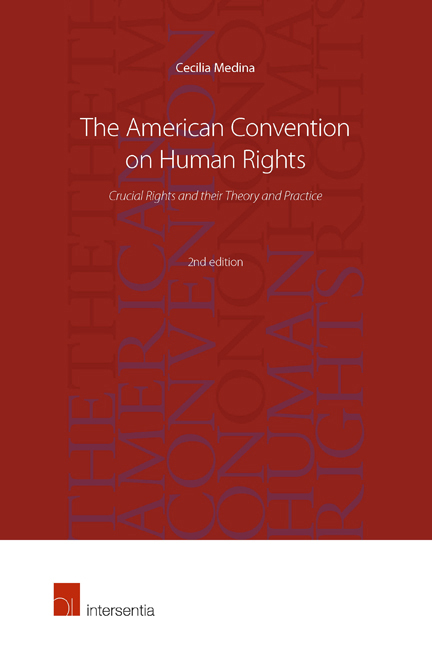Book contents
- Frontmatter
- Dedication
- Preface
- Acknowledgments
- Contents
- Table of Cases
- 1 The Court and its Circumstances
- 2 Disappearances
- 3 Right to Life
- 4 Right to Humane Treatment
- 5 Right to Personal Liberty
- 6 Right to Due Process
- 7 Principle of Legality, Freedom from Ex Post Facto Laws, and Right to Compensation for Miscarriage of Justice
- 8 Right to Judicial Protection
- Index
8 - Right to Judicial Protection
Published online by Cambridge University Press: 12 December 2017
- Frontmatter
- Dedication
- Preface
- Acknowledgments
- Contents
- Table of Cases
- 1 The Court and its Circumstances
- 2 Disappearances
- 3 Right to Life
- 4 Right to Humane Treatment
- 5 Right to Personal Liberty
- 6 Right to Due Process
- 7 Principle of Legality, Freedom from Ex Post Facto Laws, and Right to Compensation for Miscarriage of Justice
- 8 Right to Judicial Protection
- Index
Summary
Article 25
1. Everyone has the right to simple and prompt recourse, or any other effective recourse, to a competent court or tribunal for protection against acts that violate his fundamental rights recognized by the constitution or laws of the state concerned or by this Convention, even though such violation may have been committed by persons acting in the course of their official duties.
2. The States Parties undertake:
a. to ensure that any person claiming such remedy shall have his rights determined by the competent authority provided for by the legal system of the state;
b. to develop the possibilities of judicial remedy; and
c. to ensure that the competent authorities shall enforce such remedies when granted.
INTRODUCTION
The existence of human rights enshrined in the American Convention, constituting a minimum standard that State Parties must respect and ensure, requires the establishment of mechanisms for the supervision and protection of those rights. It is primarily the State that must establish effective domestic remedies for protecting rights, without prejudice to the existence of subsidiary international supervisory mechanisms. Human rights are to be enjoyed and respected at all times and in all places, and in the event they are violated, there must be a rapid response to re-establish their protection. This response can only come from the State in question, given that international monitoring is by necessity slow and late, and it would be completely impossible for such monitoring to replace domestic protection with any sort of efficiency. All this is, in principle, reflected in Article 8, which states from the beginning, “[e]very person has the right to a hearing”. The European Convention sets forth in Article 6 that “everyone is entitled to a fair and public hearing”. The International Covenant on Civil and Political Rights (ICCPR) states in Article 14 that “everyone shall be entitled to a fair and public hearing”. The European Court and the Human Rights Committee that supervises compliance with the ICCPR derive from these provisions all that is needed in order to ensure the judicial protection of human rights at the domestic level.
- Type
- Chapter
- Information
- The American Convention on Human RightCrucial Rights and their Theory and Practice, pp. 349 - 368Publisher: IntersentiaPrint publication year: 2016



